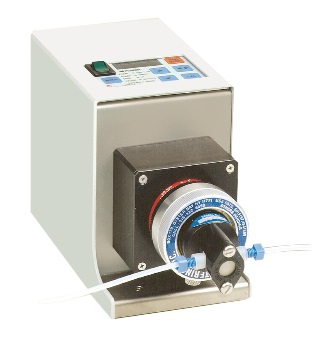What information is required to make a pump selection?
Our aim at MSE is to offer you the best solution to meet your application requirements and circumstances. The more information that you are able to provide us with; the more tailored and effective the solution that we can offer.
Basic information required for all pump selections
With the following information, we are able to make a basic pump selection;
Liquid name
Knowing the liquid that you are pumping is vital as it allows us to ensure that we offer a pump constructed from compatible materials; thus avoiding potential corrosion and abrasion issues. What is the chemical make up? Are there any solids present, if so what is the maximum particle size and concentration?
Flow rate
This will determine the size of the pump required. A higher flow rate requires a larger pump.
Pressure
The pressure at the inlet and outlet of the pump will determine the type and often the size of pump required. Knowing the pressure you are pumping against allows us to select the most suitable pump technology. If you are unsure of your differential pressure; we can help to calculate it
Viscosity
There are many units of measurement for viscosity however we tend to work in centipoise cP or centistokes cSt. Viscosity is a measure of a liquid’s resistance to deformation caused by stress, or more plainly; the ‘thickness’ of a liquid. Viscosity is typically higher for thicker liquids, for example; water has a viscosity of 1 cp at 20 degC whereas honey has a viscosity of approximately 10000 cp. Viscosity affects the type and size of the pump required, with higher viscosities usually requiring positive displacement units running at lower speeds rather than centrifugal pump solutions.
Density
The density or specific gravity of the pumping liquid at the operating temperature will affect how much power is required to achieve the required duty. This in turn will help us size a suitable drive or motor to operate the pump without a problem.
Temperature
This can affect the materials of construction for the pump, and the type of pump offered.
Additional information
To provide a more personalised selection, the following information is helpful to have;
-
Motor requirements
Electric or air? If electric, what voltage and frequency do you require? -
Control
Do you require any special controls for the pump? Will you be running at a fixed speed or is a variable speed drive required? -
Usage cycle
Will the pump be run continuously or intermittently? -
Area of use
Will the pump be operated in an ATEX area? If so, what classification is required? -
Suction set up
How will you be feeding the pump? -
Vapour pressure
Do you know the vapour pressure of your process liquid? This is more relevant when pumping at elevated temperatures. -
Certification
Is any certification required with the pump? For example, are you operating in the food industry and need to comply with FDA guidelines? -
Budget
Roughly, what budget do you have available for the project? Often there is more than one solution for a pumping application.
| CLICK HERE TO SEE OUR FULL PRODUCT RANGE |
|---|

